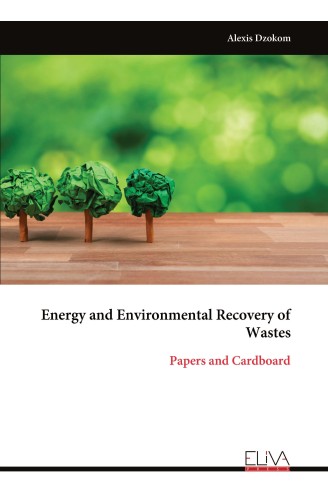Description
Leave review
Description
The problem of paper and cardboard waste management presents local pollution, due to the presence of metal alloys used as binding and potentially dangerous for the environment and human health, and diffuse pollution, due to the presence of inks also potentially dangerous for the environment and human health. Not mastered, this management could be a real problem in the cities of developing countries. In a context where the quantities of paper and cardboard waste follow the population growth and that wood fuel is decreasing due to desertification and deforestation, this work generally aims to propose an ecological alternative to the cutting firewood by recovering energy from paper and cardboard waste to contribute to the improvement of solid waste management and the fight against desertification. The quantification of the flow of paper and cardboard in the city of Maroua using a hypothetical-deductive methodology focused on a total quantity of 81.7 tons of paper second generation rejected towards nature during all services in the city of Maroua between 2019-2020. During the same period, the recycling of paper and cardboard waste to produce briquettes could save between imports of raw materials of papers and the gain in CO2 sequestration, more than 125,487.47 tons of CO2 in a sahelian city such as that of Maroua. The manufacture of fuel briquettes by a mechanical process allowed to determine their physical characteristics from which it emerges that their average density is 1.12 ± 0.40 with an average surface area/volume ratio of 3595.88 ± 19.90 mm-1 . Their chemical characterizations made it possible to determine the rate dry average humidity of 4.00 ± 0.02%, and an average fixed carbon content of the order of 33.24 ± 1.31%. The average calorific value measured for pre-treated and optimized fuels is 41.18 ± 6.34 MJ/Kg while the average calorific value measured for fuels pretreated but not optimized is 12.65MJ / Kg. Briquettes made from paper and cardboard (90-98%) and plastic (2-10%) emit CO (1300-2110ppm), CO2 (0-1.99%) in the presence oxygen (18.4-25%) below the standard: therefore they are non-polluting for the environment.




